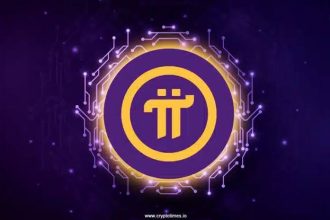Ethereum and Bitcoin, have emerged as dominant players in cryptocurrency. While both have garnered significant attention and investments, Ethereum holders may have more to worry about compared to their Bitcoin counterparts. In this article, we’ll explore the key reasons why Ethereum holders might be facing unique concerns in the crypto space.
1. Regulatory Uncertainty
One of the pressing concerns for Ethereum holders is regulatory uncertainty. While Bitcoin is often classified as a digital currency or commodity, Ethereum’s use cases extend beyond simple transactions. Its smart contract capabilities and decentralized applications have led to debates about whether certain aspects of Ethereum should be treated as securities. This regulatory ambiguity could lead to potential legal challenges and affect the value and usability of Ethereum.
2. Scaling Challenges
Ethereum’s popularity has led to congestion on its network, resulting in high gas fees and slower transaction times. While solutions like Ethereum 2.0 are in development to address these issues, they remain unproven at the time of my last knowledge update in September 2021. Bitcoin, with its simpler use case as a digital store of value, doesn’t face the same level of pressure to scale quickly.
3. Competition in Smart Contracts
Ethereum’s primary differentiator is its ability to support smart contracts and decentralized applications (DApps). However, the crypto space is highly competitive, with rival platforms like Binance Smart Chain, Polkadot, and Solana gaining traction. Ethereum must continually innovate and upgrade to maintain its leadership in the smart contract space, putting pressure on Ethereum holders.
4. Ethical Concerns with Proof of Stake
Ethereum’s transition from Proof of Work (PoW) to Proof of Stake (PoS) as part of Ethereum 2.0 raises ethical questions for some holders. PoS is more energy-efficient but has been criticized for concentrating power among a smaller number of wealthy validators. This shift in the consensus mechanism could create divisions among the Ethereum community, leading to potential concerns for holders.
5. Technological Risks
Ethereum’s rapid development and frequent upgrades introduce technological risks. Smart contracts can have vulnerabilities, as seen in past incidents like the DAO hack. While Ethereum continues to improve its security measures, these risks remain, and a high-profile exploit could impact Ethereum holders.
Ethereum holders should be aware of the unique challenges and concerns that come with their investments. Regulatory ambiguity, scaling issues, competition in smart contracts, ethical dilemmas with PoS, and technological risks make Ethereum a dynamic but potentially more worrisome investment compared to Bitcoin. As the cryptocurrency landscape evolves, staying informed and vigilant is crucial for all crypto holders. Read Similar Story












